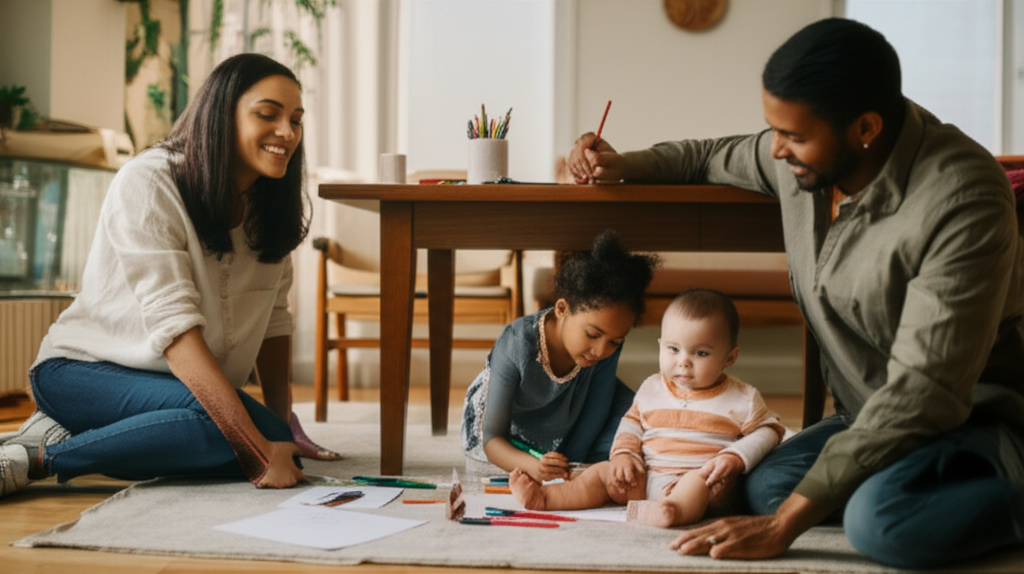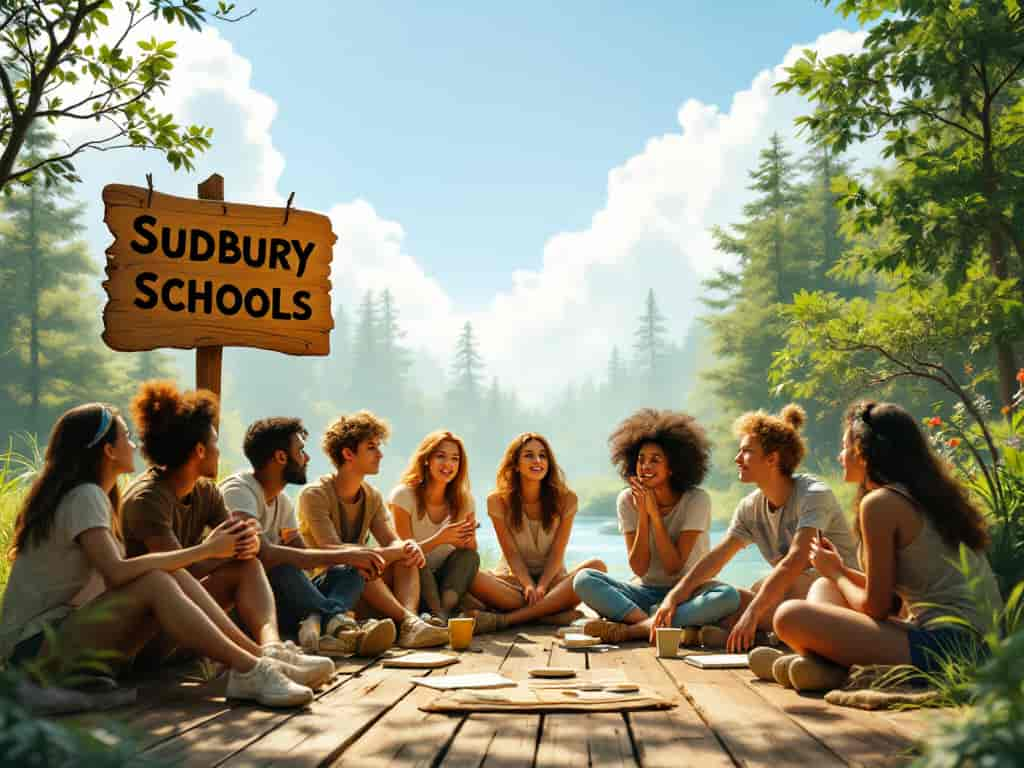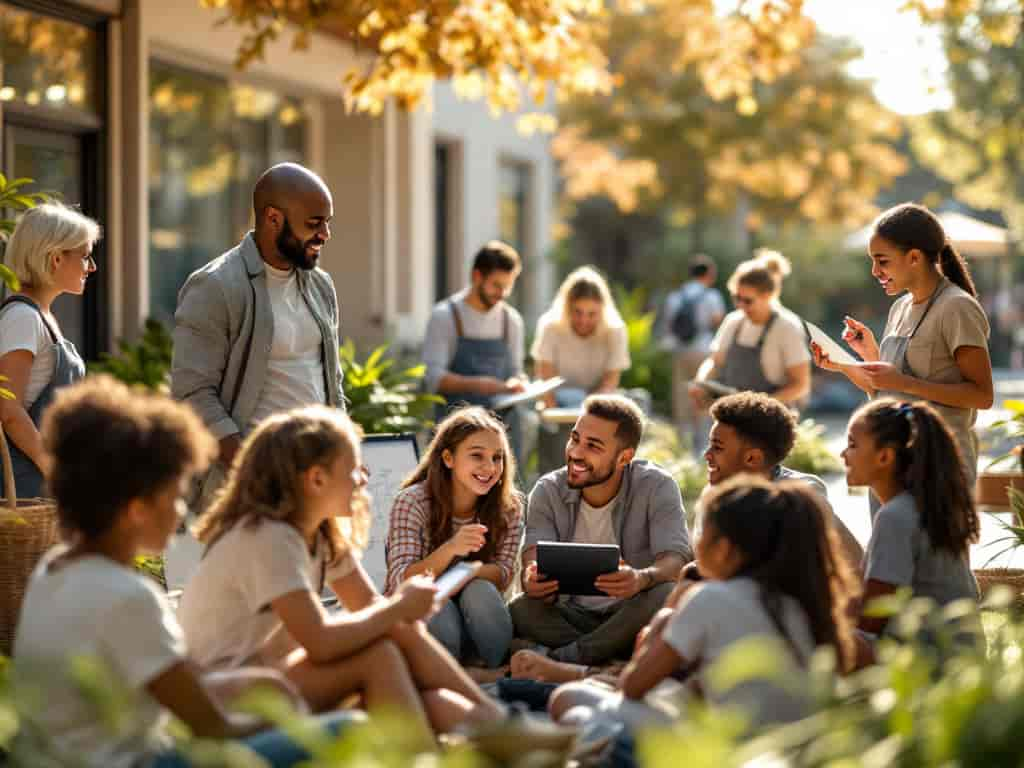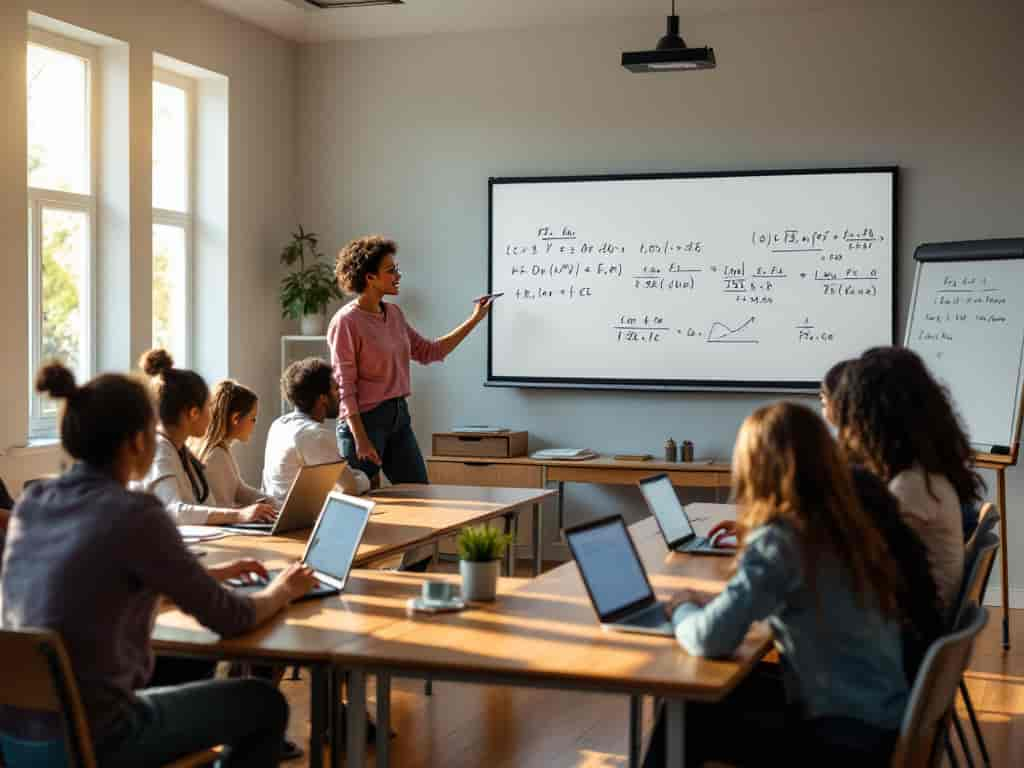Social Media’s Impact on Student Learning
Ellie Moore
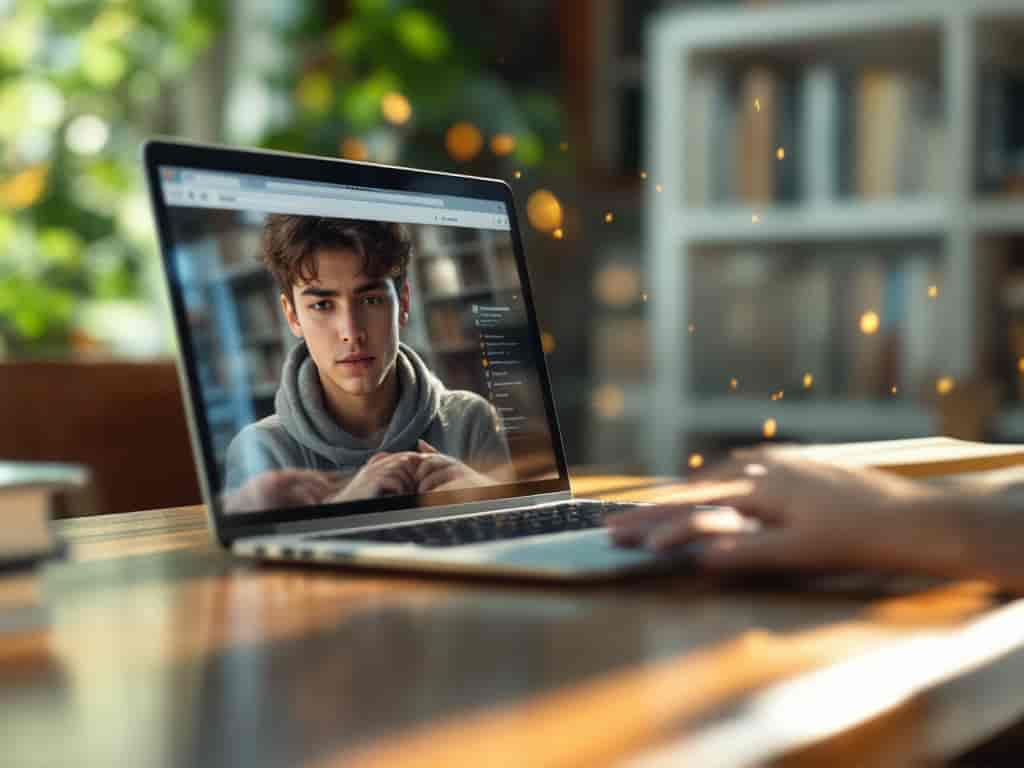
Photo: Social Media’s Impact on Student Learning
The Impact of Social Media on Student Learning: Opportunities and Challenges
In the age of technology, social media has become a pervasive part of daily life, especially among students. Platforms like Facebook, Twitter, Instagram, and TikTok are not just places for entertainment or social interaction they are increasingly becoming educational tools. With billions of active users, social media is influencing how students engage with information, communicate, and even learn. But is this influence positive or negative? Let’s explore the impact of social media on student learning, its benefits, drawbacks, and how students can harness it for academic success.
Table of Contents:
- Introduction: The Social Media Revolution in Education
- The Positive Effects of Social Media on Student Learning
- Enhancing Collaboration
- Expanding Access to Educational Resources
- Promoting Engagement with Diverse Learning Styles
- The Negative Impact of Social Media on Student Learning
- Distraction and Decreased Focus
- Misinformation and Inaccurate Resources
- Social Comparison and Mental Health Concerns
- How Students Can Maximize the Benefits of Social Media for Learning
- Setting Boundaries and Managing Time
- Curating Quality Educational Content
- Engaging in Educational Communities and Networks
- Conclusion: Finding the Balance Between Learning and Social Media
- FAQs
Introduction: The Social Media Revolution in Education
Social media has become one of the most influential forces in shaping how students interact with the world around them. While it started primarily as a social tool, its role in education is undeniable. Today, students use social media platforms to share ideas, collaborate on projects, and even discover new learning opportunities outside the traditional classroom. However, with these benefits come significant challenges that can hinder their academic performance if not properly managed.
In this article, we’ll dive into how social media influences student learning, both positively and negatively, and offer practical tips on how to maximize its educational potential while mitigating its risks.
The Positive Effects of Social Media on Student Learning
When used properly, social media can serve as a powerful educational tool that enhances the learning experience. Here are some of the primary benefits:
Enhancing Collaboration
Social media platforms facilitate seamless communication and collaboration between students. Groups on Facebook, discussion forums on Reddit, or study groups on WhatsApp make it easy for students to share resources, ask questions, and discuss academic concepts in real-time. For example, platforms like Google Classroom and Slack integrate social media features that allow students to collaborate on assignments and projects, fostering teamwork and critical thinking.
Expanding Access to Educational Resources
Social media provides students with immediate access to a wealth of educational content. Whether it's YouTube tutorials, LinkedIn learning courses, or academic Twitter threads, students can access high-quality educational material for free or at a low cost. Influencers in various fields often share knowledge and tips that can help students gain deeper insights into their subjects.
For instance, TikTok has gained popularity for educational purposes, with creators sharing bite-sized lessons on everything from physics to language learning. These platforms democratize learning by breaking down geographic and financial barriers that traditionally limited access to quality education.
Promoting Engagement with Diverse Learning Styles
Different students have different learning styles, and social media accommodates these differences. For visual learners, YouTube videos and infographics can be highly effective. Auditory learners may prefer podcasts or narrated lessons, while kinesthetic learners can engage with interactive quizzes or games on platforms like Kahoot!. By offering a variety of content, social media allows students to choose the methods that work best for them.
The Negative Impact of Social Media on Student Learning
While social media has many educational benefits, it also comes with significant downsides that can interfere with a student’s learning process.
Distraction and Decreased Focus
One of the most widely discussed issues related to social media’s impact on student learning is the potential for distraction. With constant notifications, messages, and updates, it's easy for students to get sidetracked. A study by the University of Chicago revealed that students who spent more time on social media platforms reported lower academic performance due to divided attention.
Students might intend to check their Facebook for a quick update and find themselves scrolling for hours, losing valuable study time. This constant engagement with social media can disrupt concentration and reduce the quality of academic work.
Misinformation and Inaccurate Resources
While social media provides access to a vast amount of information, not all of it is reliable. Misinformation and fake news spread quickly across social platforms, making it difficult for students to discern what’s true and what’s not. For example, health misinformation has been rampant on platforms like Instagram and TikTok, potentially leading students to trust unreliable sources.
Educators have a responsibility to teach students how to critically evaluate the content they consume online, and students themselves need to develop the skills to filter out inaccurate or biased information. Learning to use social media responsibly is key to preventing the spread of misinformation.
Social Comparison and Mental Health Concerns
Another drawback of social media is the potential for social comparison. Platforms like Instagram often showcase idealized versions of people’s lives, which can lead students to feel inadequate or anxious about their own academic or personal achievements. This constant comparison may result in lower self-esteem, depression, and stress, which can negatively affect learning.
Research has shown that students who spend too much time on platforms that focus heavily on appearance or social status may experience heightened feelings of anxiety, which could interfere with their ability to concentrate or engage in productive study sessions.
How Students Can Maximize the Benefits of Social Media for Learning
While the risks of social media are real, there are ways students can harness its potential to support their academic goals. Here are some actionable tips:
1. Setting Boundaries and Managing Time
The key to using social media effectively for learning is managing time. Setting specific hours for study and social media use can prevent distractions. Students can use tools like app blockers (e.g., Freedom, Cold Turkey) or time-management techniques (e.g., Pomodoro) to ensure they stay focused during study sessions.
2. Curating Quality Educational Content
Rather than passively consuming content, students should curate their feeds to follow educational influencers, academic institutions, and subject matter experts. Platforms like LinkedIn, Twitter, and YouTube are great for following professionals in various fields who share valuable insights. This way, students can make sure they are engaging with information that enriches their learning experience.
3. Engaging in Educational Communities and Networks
Joining groups or communities dedicated to academic subjects can be a great way to connect with like-minded learners. Subreddits like r/AskAcademia or Facebook groups for specific subjects (e.g., History, Biology) allow students to share resources, ask questions, and gain insights from peers and experts in their fields.
Conclusion: Finding the Balance Between Learning and Social Media
Social media’s impact on student learning is multifaceted. While it offers remarkable opportunities for collaboration, access to educational content, and diverse learning styles, it also presents challenges such as distraction, misinformation, and mental health concerns. The key to leveraging social media’s potential lies in finding a balance using these platforms as tools for learning while being mindful of the risks.
Students who actively engage with social media in a focused and strategic manner can reap significant academic benefits. It’s up to each student to create a learning environment where social media enhances, rather than detracts from, their academic journey.
FAQs
1. How can social media help students learn better? Social media helps students by offering access to a vast array of educational resources, enabling collaboration, and promoting engagement with diverse learning styles.
2. Can social media be a distraction to students? Yes, if not managed properly, social media can lead to distractions that decrease focus and productivity. Setting boundaries and managing screen time are essential.
3. What are the dangers of misinformation on social media? Misinformation on social media can mislead students and hinder their academic progress. It is crucial to develop critical thinking skills and verify information from trusted sources.
4. How can students use social media without negatively impacting their mental health? To minimize mental health risks, students should avoid excessive comparison with others, limit time spent on image-centric platforms, and focus on engaging with educational content.
Finance & Investment
View All
January 31, 2025
M1 Finance Smart Investing AppElevate your online presence with expert SEO content. Drive traffic, improve rankings, build trust, and convert visitors into customers.
Ellie Moore

January 21, 2025
Neighborhood Finance Corporation HelpMaster expert SEO content to boost rankings & authority. Learn to create valuable, E-E-A-T-driven content that builds trust and dominates search.
Ellie Moore

March 16, 2025
Finance Manager Success TipsCraft expert SEO content for higher rankings & engaged readers. Discover how to create valuable, authoritative content that satisfies E-E-A-T & builds trust.
Ellie Moore

June 15, 2025
MA Finance Online Degree Complete GuideYour blueprint for dominating search in 2025: Master expert SEO content to build authority, drive traffic, and meet E-E-A-T standards.
Ellie Moore

February 12, 2025
Managing Finances Like a ProUnlock higher rankings and engaged audiences with expert SEO content. This guide reveals how to craft valuable, authoritative content that satisfies users & alg...
Ellie Moore

August 14, 2025
Mazda Financing Deals You’ll LoveUnlocking Top Rankings: Your Guide to Expert SEO Content In today's crowded digital landscape, simply having content isn't enough. To truly stand out, attract y...
Ellie Moore
Insurance
View AllNavigate healthcare's future. Discover essential health insurance companies for robust, affordable coverage, ensuring peace of mind for policyholders & pros.
Ellie Moore
Unlock optimal protection & value with Allstate insurance. This guide helps policyholders & risk managers confidently secure their future.
Ellie Moore
Explore aviation insurance options, from aircraft liability to passenger protection. Secure the skies for your operations!
Ellie Moore
Learn how critical illness insurance offers financial protection during health crises. Get covered and stay secure!
Ellie Moore
Find optimal premium car insurance quotes online. This guide helps policyholders, agents & risk managers compare rates for robust, high-value coverage.
Ellie Moore
Learn how high-net-worth individuals get specialized insurance tailored to unique assets and risks. Discover luxury coverage!
Ellie Moore
Education
View AllSudbury schools embrace radical self-direction in learning. Learn how they empower students to take full control of their education journey.
Read MoreMicro-credentials are on the rise! Discover how they provide fast, focused skills for today’s learners and reshape education.
Read MoreStrong school-community partnerships can drive student success. Discover the benefits and strategies for effective collaboration.
Read MoreDiscover how flipped classrooms work and why they’re becoming popular. Learn the key benefits of this innovative teaching approach.
Read MoreProviding education in conflict zones is a major challenge. Learn about the barriers and efforts to ensure learning continuity in crisis situations.
Read MoreSocial skills training is key for kids with autism. Learn practical strategies to improve social interaction and communication in children with ASD.
Read MorePopular Post 🔥
View All
1
2
3
4
5
6
7
8
9
10
Health






Automotive
View All
July 29, 2025
AA Automotive Care Tips For Every Vehicle Owner
Keep your car running smoothly for years! This guide offers essential AA automotive care tips for every owner, ensuring safety, efficiency, and a long-lasting r...

August 22, 2025
Davis Automotive Quality You Can Count On
Davis Automotive defines quality in auto repair. Experience expert service, honest assessments, and lasting peace of mind for your vehicle. Your trusted choice.

August 2, 2025
Automotive Painter Jobs And How To Get Hired
Drive your career forward! Learn how to get hired as an automotive painter, mastering the art of vehicle refinishing for a rewarding profession.

August 12, 2025
STS Automotive Denver Services You Can Trust
Searching for trusted used cars in Denver? STS Automotive specializes in affordable vehicles, including salvage titles, ensuring value & peace of mind.

September 13, 2025
What Lincoln Automotive Financial Can Offer
Embark on luxury vehicle ownership. Experience refined elegance & innovative spirit for an exciting journey ahead.

September 12, 2025
Joe Bullard Automotive Premier Car Solutions
Joe Bullard Automotive: Your trusted partner for premier car solutions. Experience unparalleled service, expertise, and a customer-first approach since 1955.

